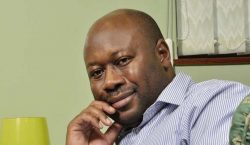

Fame may be the spur for many of Zimbabwe’s aspiring and established writers, but the Caine Prize for African Writing offers winning authors not only book readings, book signings and press releases, but prize money worth GBP10 000. The first prize giving ceremony for this prestigious award took place in Harare in 2000, at the Zimbabwe International Book Fair, when the winner was Leila Aboulela, who grew up in Khartoum. In 2004 Bulawayo-born Brian Chikwava won the coveted prize for his short story Seventh Street Alchemy, and in 2011 NoViolet Bulawayo was declared winner for Hitting Budapest.
Established in 2000, the same year as The Caine Prize, amaBooks, an independent Bulawayo publisher, opened its doors to budding and published writers, with the intention of promoting creative writing not only in Bulawayo but throughout Zimbabwe and the region. Their latest offering is an anthology of stories shortlisted for the Caine Prize 2013, entitled A Memory this Size and Other Stories, a volume that includes this year’s winning contribution, Miracle, by Tope Folarin of Nigeria. Tales from the remaining short-listed writers make up the anthology and represent a kaleidoscope of experiences and adventures from Sierrra Leone, Uganda, Kenya, Malawi, Botswana and Zimbabwe.
Born in Utah and living in Washington DC, Folarin may not appear to be typically African — he describes himself as ‘a writer situated in the Nigerian diaspora’, and feels both American and African. If the judges and chair of the prize committee, Gus Casely-Hayford, felt any qualms about awarding the prize to Folarin, the light touch, narrative skill and humour in the story of a young man singled out by a Nigerian holy man for healing in an evangelical church in Texas, convinced them that he was a worthy winner.
Nigerian Rotimi Babatunde who lives in Ibadan, and won last year’s Caine Prize for Bombay’s Republic, the tale of a veteran who ‘went to Hitler’s War as a man and came back a spotted leopard’, was shortlisted this year for Howl, the tale of a puppy called Jack ‘that had a baby’s eyes’ and improbably grew up to be a paediatrician.
Yet another Nigerian writer, Elnathan John, made the Caine Prize short list, so it would appear that Nigeria sets great store by literature, values its writers and provides fertile ground for creative writing. Trained as a lawyer, Elnathan lives in Abuja. When he’s not writing short stories he dispenses free legal and social aid through his project, Legal Aid. His shortlisted story, Bayan Layi, is about a gang of street kids who fight, take drugs and ‘boast about the people they have killed’.
Short-listed author Chinelo Okparanta was born in Port Harcourt, the chief oil refining city in Nigeria and is familiar with the petroleum industry. In the short story America, her protagonist, who is a science teacher, laments the damage the oil industry has wrought on the ecosystem. Fishermen in Gio Creek fail to catch any fish, but come out of the water ‘harvesting Shell oil on their bodies’. Okparanta has a deft and easy way with words as she describes the science teacher’s enduring love affair with another woman and her parents’ disappointment that they will be without grand children, her ambition to study environmental engineering in America, and vivid insights into the customs, food and people of Nigeria.
Zimbabwean Melissa Myambo is once again short-listed for the Caine Prize, this time for Blood Guilt, a complex psychological story of a liberation war matriarch known as Gogo, whose authority and family are threatened when a damaging video of her interrogation of her ex-comrade Beatrix ‘goes viral’.
Also on the short list again this year is Malawian Stanley Kenani who is an accountant for The Lilongwe Water Board. An avid reader of fiction, whenever he is not ensuring the smooth running of the utility company he works for, he is writing poetry, working on a novel entitled The Auditor, or dreaming about the plot of the next short story to win the Caine Prize. This year’s entry, Clapping Hands for a Smiling Crocodile, describes the perils involved when a government official forces a fishing village on the shores of Lake Malawi to allow an oil drilling company access to the ‘shimmering waters’ of the lake.
amaBooks and other Zimbabwean publishers are seeing the fruits of their efforts, as the country’s literacy rate improves and an increasing number of local writers are encouraged to hone their writing skills and give free rein to their creativity.